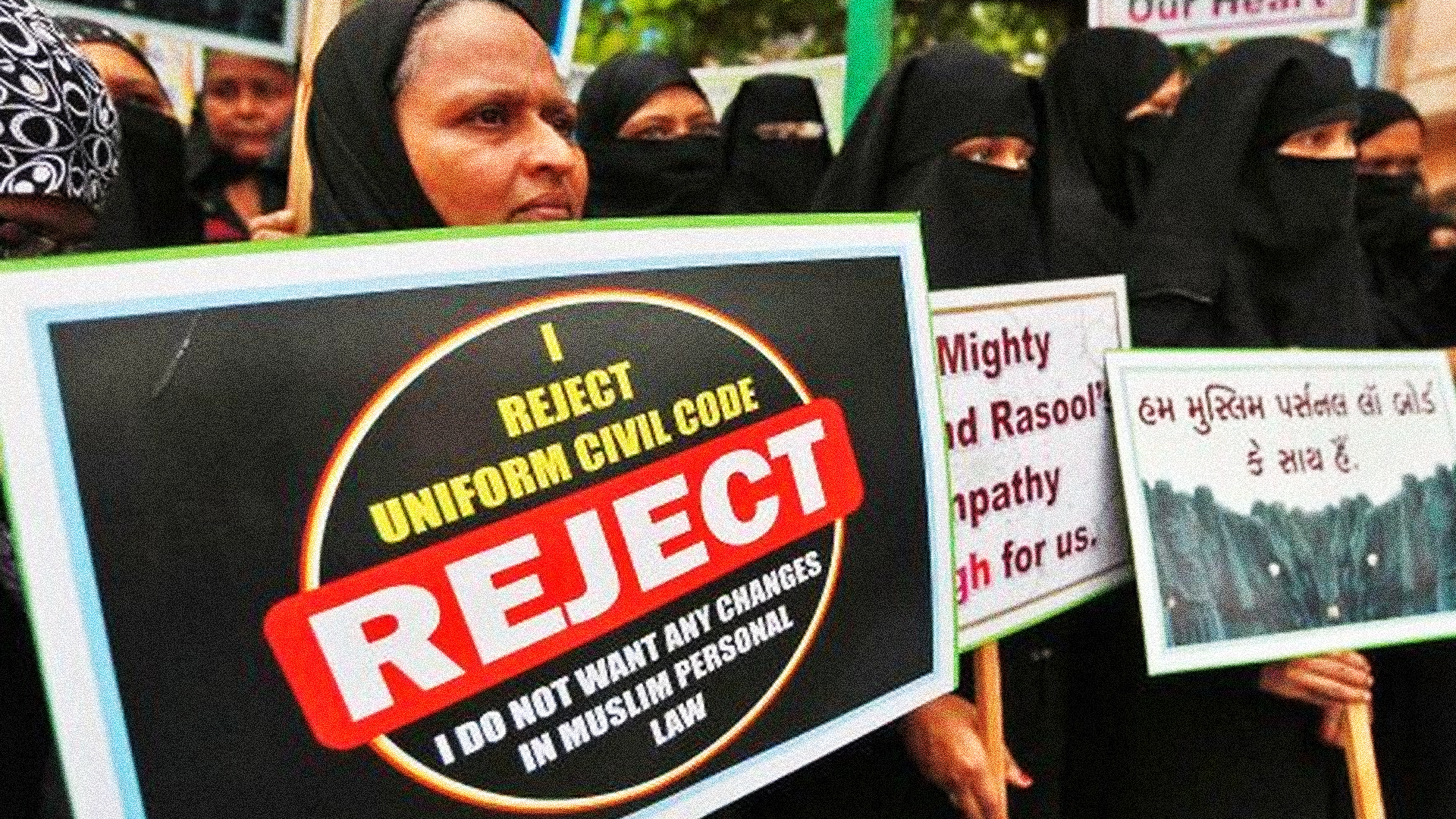In India, different religious communities are governed by their own laws on marriage, divorce, inheritance, adoption, etc. Yet, the ruling party has promised to bring into force a uniform civil code, whereby all these communities would be governed by a single law.
Article 44 of the Indian Constitution says: ‘The State shall endeavour to secure for the citizens a uniform civil code throughout the territory of India’.
Since the ruling Bharatiya Janata Party (BJP) came to power, they have promised to enforce a UCC across India.
This announcement has been met with strong opposition from religious minorities, especially Muslims, who fear that this policy is one driven by majoritarianism at the cost of minorities losing their religious integrity.
However, this issue is contested not just among religious communities, but also among legal institutions; the Supreme Court of India has called for a UCC to be implemented in multiple judgements, whereas the Law Commission has said that to do so would be ‘unfeasible’ and ‘undesirable’.
Yet, before picking sides on this debate, it is essential to look at the history surrounding UCC.
How did the UCC come into being?
When the British ruled over India, they created different sets of laws for religious communities with the help of Hindu priests and Muslim clerics.
This way, they formed Sir Thomas Strange’s Elements of Hindu Law, the Shariat Act of 1937, and the Dissolution of Muslim Marriages Act of 1939, among others.
When opposition to these personal laws grew, it was mainly against the patriarchal aspects of Hindu law. This was because as per Hindu law, women were not allowed to divorce their husbands, polygamy was not outlawed for men, and daughters did not have equal inheritance rights.
When India gained independence from the British, there was a discussion amongst legislators on whether or not to do away with the personal laws.
On the 28th of March, 1947, the motion to include UCC among the fundamental rights was raised in the sub-committee of fundamental rights for the first time by M. R. Masani. However, this motion was rejected by other sub-committee members by a vote of 5:4.



















